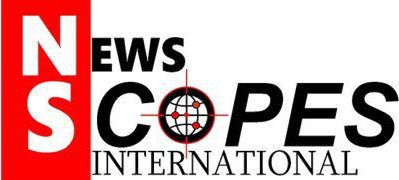**قطاع الصيدلة في لبنان يواجه تحديات غير مسبوقة وسط مخاوف من نقص الإمدادات**
في ظل الظروف الصعبة التي يعيشها لبنان، يعاني القطاع الصيدلاني من تحديات غير مسبوقة، حيث كشف نقيب صيادلة لبنان، الدكتور جو سلوم، عن التدهور الذي أصاب العديد من الصيدليات، حيث توقفت بعضها عن العمل وتعرضت أخرى للتدمير.
وفي تصريح خاص لـ”ليبانون ديبايت”، أوضح الدكتور سلوم أن “رغم كل التحديات، ما زالت بعض الصيدليات تقاوم وتواصل تقديم خدماتها، ما يعكس قوة وتحمل الصيادلة في هذه الظروف القاسية”.
وأكد الدكتور سلوم على “أهمية الحفاظ على المخزون الدوائي، خصوصًا أدوية السرطان التي تمثل أولوية قصوى في الوقت الراهن”، محذرًا من أن “وجود هذه الأدوية في الصيدليات المتضررة قد يشكل خطرًا على الصحة العامة”.
ودعا إلى “ضرورة وضع خطة طوارئ شاملة لضمان تأمين احتياجات المرضى من الأدوية، محذرًا من العواقب الخطيرة التي قد تنجم عن عدم توفر الأدوية الضرورية في المستقبل القريب”.
كما كشف سلوم عن إطلاق حملة لجمع التبرعات والبيانات لدعم الصيادلة المتضررين، مؤكدًا على “المساعدات التي تم جمعها وتوزيعها على مراكز الإيواء”، وشدد على ضرورة “استمرار هذه الجهود لدعم القطاع الصيدلاني في مواجهة هذه التحديات”.
واختتم نقيب الصيادلة بتوجيه تحية للصيادلة العاملين في المناطق الحدودية، الذين يبذلون جهودًا جبارة في سبيل توفير الدواء للمجتمع رغم الصعوبات الكبيرة التي يواجهونها.
المصدر: ليبانون ديبايت
**Lebanon’s Pharmaceutical Sector Faces Unprecedented Challenges Amid Fears of Supply Shortages**
Amid Lebanon's ongoing crisis, the pharmaceutical sector is grappling with unprecedented challenges. The President of the Lebanese Order of Pharmacists, Dr. Joe Salloum, has revealed the deterioration affecting many pharmacies, some of which have ceased operations, while others have been destroyed.
In a statement to “Lebanon Debate,” Dr. Salloum explained that “despite the difficult circumstances, several pharmacies continue to stand firm, showcasing the courage and resilience of those working in the sector.”
Dr. Salloum emphasized the “critical importance of protecting medication supplies, particularly cancer drugs, which are a top priority during these challenging times.” He warned that “the presence of essential medications in vulnerable pharmacies could endanger public health.”
He urged for the “implementation of an effective emergency plan to ensure patients' access to medications, warning of the dire consequences that could arise from potential drug shortages in the near future.”
Dr. Salloum also announced the launch of a campaign to collect donations and data to support affected pharmacists, highlighting the “aid that has been gathered and distributed to shelters” and called for continued efforts to support the pharmaceutical sector in overcoming these challenges.
He concluded by praising the perseverance of pharmacists in border areas, who are working tirelessly to meet the community's needs despite the severe difficulties they face.
translated by economyscopes team







